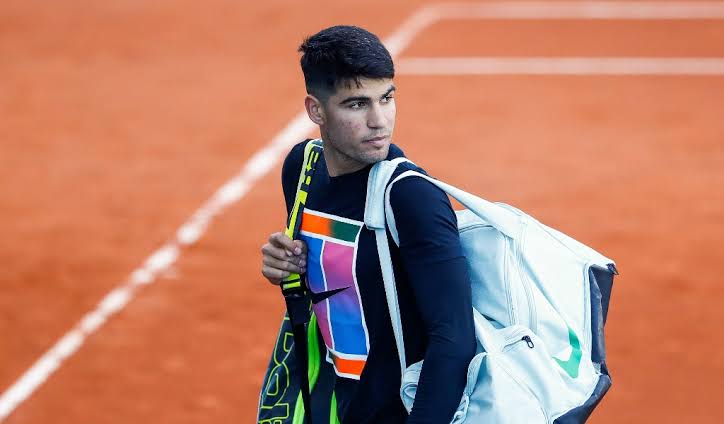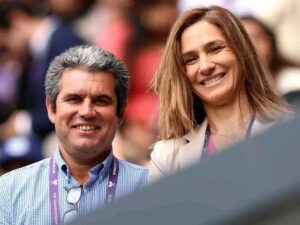
Carlos Alcaraz, the young tennis sensation, recently made headlines with his decision to withdraw from his next game, a choice that has left fans and the tennis community deeply concerned. At just 21 years old, Alcaraz has already carved out an impressive career for himself, with multiple Grand Slam titles and a reputation as one of the brightest talents in the sport. However, the decision to withdraw from his upcoming match speaks to the challenges and pressures that come with professional sports.
The primary reason for Alcaraz’s withdrawal is attributed to an injury that has been troubling him for some time. Though initially thought to be a minor issue, the discomfort in his lower back and hip has persisted, affecting his performance and overall physical condition. This injury, while not uncommon among athletes who push their bodies to the limit, has proven more problematic than initially anticipated. Alcaraz and his team have taken a cautious approach, opting for a period of rest and rehabilitation rather than risking further aggravation of the injury.
In professional tennis, injuries are a serious concern. They not only impact a player’s immediate performance but also have long-term implications for their career. For Alcaraz, who has been in stellar form over the past year, this withdrawal is a significant setback. His aggressive playing style and powerful strokes demand peak physical condition, and any compromise in his health can severely affect his game. By choosing to withdraw now, Alcaraz aims to prevent a more serious injury that could potentially sideline him for an extended period.
This decision also reflects the broader realities of professional sports, where athletes often face the tough choice of balancing their competitive ambitions with their physical well-being. The pressure to perform at the highest level can sometimes lead players to push through injuries, risking their long-term health for short-term gains. Alcaraz’s choice to withdraw, therefore, highlights his commitment to his overall career and health, prioritizing recovery over immediate competition.
The withdrawal has generated a wave of sympathy and support from fans and fellow players alike. Many in the tennis community recognize the challenges Alcaraz faces and respect his decision to prioritize his health. Fellow competitors, who understand the rigors of the sport, have expressed their solidarity, acknowledging the tough decisions athletes must make. This support is crucial, as it reinforces the sense of camaraderie and mutual respect that exists within the sport.
In addition to physical recovery, Alcaraz’s withdrawal may also offer him an opportunity to mentally recharge. The constant travel, high-stakes matches, and relentless competition can take a toll on an athlete’s mental health. Time away from the court can provide valuable rest and an opportunity to refocus and rejuvenate, both mentally and physically. For Alcaraz, this period of downtime could be beneficial in preparing him for future challenges.
Looking forward, Alcaraz’s team and fans will closely monitor his recovery process. The hope is that with appropriate rest and treatment, he will return to the court fully restored and ready to continue his impressive career. The tennis world eagerly anticipates his comeback, recognizing the excitement and talent he brings to the sport. As Alcaraz works through his recovery, there will be a collective wish for his swift return to form and a return to the competitive arena.
In summary, Carlos Alcaraz’s decision to withdraw from his next game due to an injury underscores the complexities and challenges faced by professional athletes. While the immediate news may be disappointing, it is a reminder of the importance of prioritizing health and recovery. As he navigates this period of rehabilitation, Alcaraz’s resilience and determination will be closely watched, with hopes for a strong return to tennis’s global stage.





